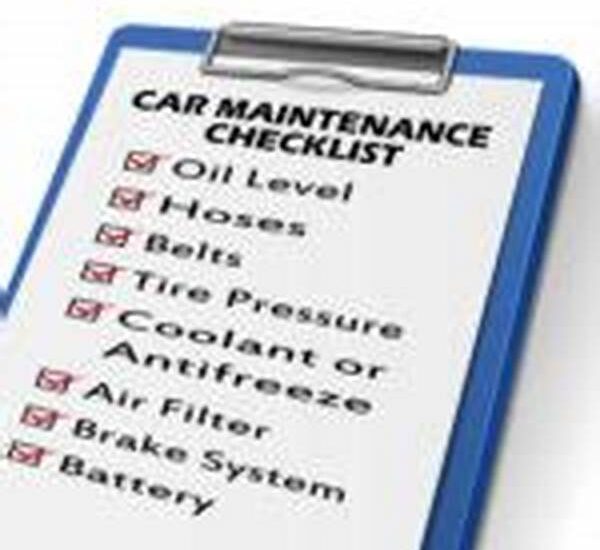
Best Practices In Vehicle Repair
In today’s fast-paced world, ensuring your vehicle is always in top condition is not just a matter of convenience but a significant investment in your safety and savings. Best practices in vehicle repair can be the critical difference between enjoying a smooth ride for years and facing unexpected breakdowns that could have been easily avoided. It’s crucial to adopt a proactive approach, understanding that regular maintenance and timely repairs can save you from hefty bills in the future. As you delve deeper into the realm of vehicle repair, you will find a structured approach not only extends the life of your vehicle but also optimizes its performance and efficiency. Embrace these practices, and you will soon realize their invaluable benefits, ensuring every journey is a safe and pleasant one.
Read Now : Vehicle Service Satisfaction Guarantee
Embracing Preventive Maintenance
At the heart of best practices in vehicle repair is preventive maintenance. This involves regular inspections, oil changes, tire rotations, and timely replacement of worn-out parts. By adopting a schedule for these tasks, vehicle owners can preemptively address issues before they escalate into major problems. Such practices not only prolong the vehicle’s lifespan but also improve its overall performance. Engaging in preventive maintenance ensures that you catch minor issues early, saving you from unexpected breakdowns and costly repairs down the line. This proactive stance on vehicle care reflects a commitment to not only preserving your vehicle but also enhancing safety on the road.
Investing in Professional Expertise
When it comes to maintaining your vehicle, relying on professional expertise is a cornerstone of best practices in vehicle repair. Expert mechanics possess the knowledge and tools necessary to diagnose problems accurately and efficiently. By entrusting your vehicle to professionals, you ensure that it receives the high-quality care it deserves. This decision to seek out expert help not only guarantees precise repairs but also provides peace of mind, knowing that your vehicle is in the hands of those who prioritize your safety and satisfaction. Emphasizing professional expertise in vehicle repair reflects a responsible approach to vehicle maintenance.
Utilizing Quality Parts and Fluids
Incorporating quality parts and fluids into your vehicle’s maintenance routine is imperative for adhering to best practices in vehicle repair. Inferior components can compromise your vehicle’s performance and safety, leading to avoidable breakdowns or accidents. By choosing high-quality parts, you ensure durability and reliability every time you hit the road. Similar attention should be given to the fluids used in your vehicle; whether it’s oil, coolant, or brake fluid, using reputable brands guarantees optimal performance and longevity. This commitment to quality reflects an understanding of the value and importance of best practices in vehicle repair.
Educating Yourself on Vehicle Systems
A crucial aspect of best practices in vehicle repair is educating yourself about your vehicle’s different systems. Understanding the basics of your car’s engine, transmission, brakes, and electrical systems empowers you to make informed decisions regarding maintenance and repairs. This knowledge aids in identifying warning signs of potential issues, allowing for timely interventions. By being informed, you can actively participate in discussions with your mechanics, ensuring that your vehicle receives the precise care it requires. Education fosters confidence and responsibility, enabling you to uphold the highest standards of vehicle maintenance.
The Impact of Regular Servicing
Regular servicing is a fundamental element of best practices in vehicle repair. Scheduled maintenance checks help in uncovering hidden issues that might not be apparent during daily use. These periodic inspections are instrumental in maintaining the vehicle’s optimal performance. Disregarding regular servicing can lead to exacerbated problems, jeopardizing your safety on the road. Scheduled check-ups not only prolong the vehicle’s life but also enhance fuel efficiency, ensuring you save money in the long run. Regular servicing stands as a testament to the importance of adhering to best practices in vehicle repair, ensuring a safe and enjoyable driving experience.
Read Now : Electric Vehicle Diagnostic Tools
Staying Updated with Technological Advances
One significant aspect of best practices in vehicle repair involves staying updated with technological advances in automotive industries. As vehicles become more technologically advanced, recognizing the role of electronics in modern cars is crucial. This awareness equips you with the ability to better maintain and troubleshoot your vehicle. Being informed helps you leverage new technologies to enhance your vehicle’s performance and safety. Staying abreast of technological advances reflects an understanding of the evolving landscape of vehicle maintenance, ensuring your practices remain current and effective.
Summary of Best Practices
To recap, best practices in vehicle repair encompass a comprehensive approach that includes preventive maintenance, professional expertise, quality parts and fluids, self-education, regular servicing, and staying updated with technology. These practices collectively ensure your vehicle remains in excellent condition, offering you peace of mind on the road. Proactively engaging in these best practices can significantly reduce the risk of unexpected repairs and ensure your vehicle performs at its best. Emphasizing and implementing these practices not only benefits you as the vehicle owner but also contributes to safer driving experiences for all road users. By embracing these guidelines, you embody a responsible and informed approach to vehicle care, securing a reliable and safe journey on every drive.